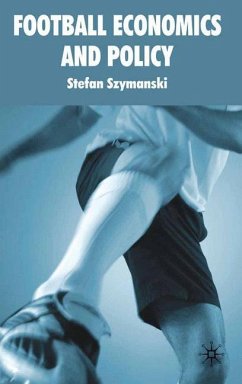
Football Economics and Policy

PAYBACK Punkte
38 °P sammeln!
This volume deals with the competitive structure of football. It examines the relationship between sporting success and economic variables, the structure of European competitions, financial problems in football, their origins and options for reform, racial discrimination in English football, and the economic impact of the World Cup.














